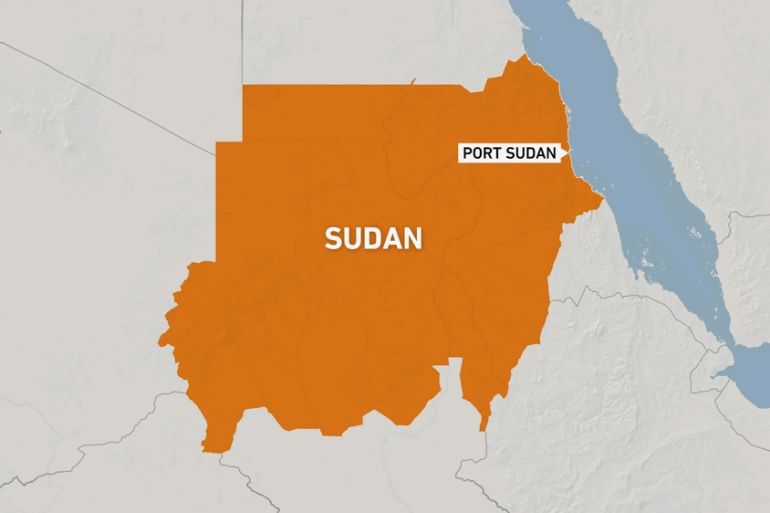Dozens killed in tribal clashes in eastern Sudan
About 90 others wounded in fighting between the Bani Amer and Nuba ethnic groups in the city of Port Sudan.

At least 25 people have been killed in clashes between ethnic groups in a port city in eastern Sudan, according to a doctors’ association.
The Central Doctors’ Committee said in a statement on Wednesday that about 90 others were wounded in the fighting that began on Sunday between members of the Bani Amer and Nuba ethnic groups in Port Sudan, a key international trade harbour on the Red Sea.
Local media reported that several houses and shops were set on fire in the violence.
“This is not the first time that clashes have broken out between the Bani Aarem and Nuba tribes,” said Al Jazeera’s Hiba Morgan, reporting from Khartoum.
“This has been going on for years and has escalated for the past 12 months,” she added.
The latest tensions between the two tribes date back to May 2019 in the eastern city of Gadarif, mainly over water and other resources. The clashes flared up in August last year in Port Sudan, when more than 30 people from both sides were killed. There were also clashes in the port city in January this year, when nine people were killed.
“For many, this is an issue of who actually deserves to be in Port Sudan and be identified as part of the east and who is overstepping on a territory that is not theirs,” said Morgan.
Local authorities in Port Sudan have responded to the latest bout of violence by placing the city of roughly half a million people under complete lockdown, prohibiting residents from leaving their homes.
For his part, Prime Minister Abdallah Hamdok called on political parties in eastern Sudan to cooperate with local authorities to “protect security and social peace”. He is due to address the country’s security and defence committee on Thursday in a bid to figure out a solution, Morgan reported.
Hamdok was named prime minister in August last year, months after nationwide pro-democracy protests forced the military to remove longtime President Omar al-Bashir from office.
While Hamdok’s transitional cabinet is tasked with the day-to-day running of the country, a joint civilian-military sovereign council headed by General Abdel Fattah al-Burhan is overseeing an overall transition to civilian rule as demanded by the protest movement.
The tribal violence poses a significant challenge to the efforts of Sudan’s authorities to stabilise the country and lead it to elections in 2022.
Throughout Sudan, the United Nations has said almost 10 million people are now facing food shortages due to conflict, rising prices and the coronavirus pandemic, with many of these people being in the country’s conflict-hit areas.
|
|